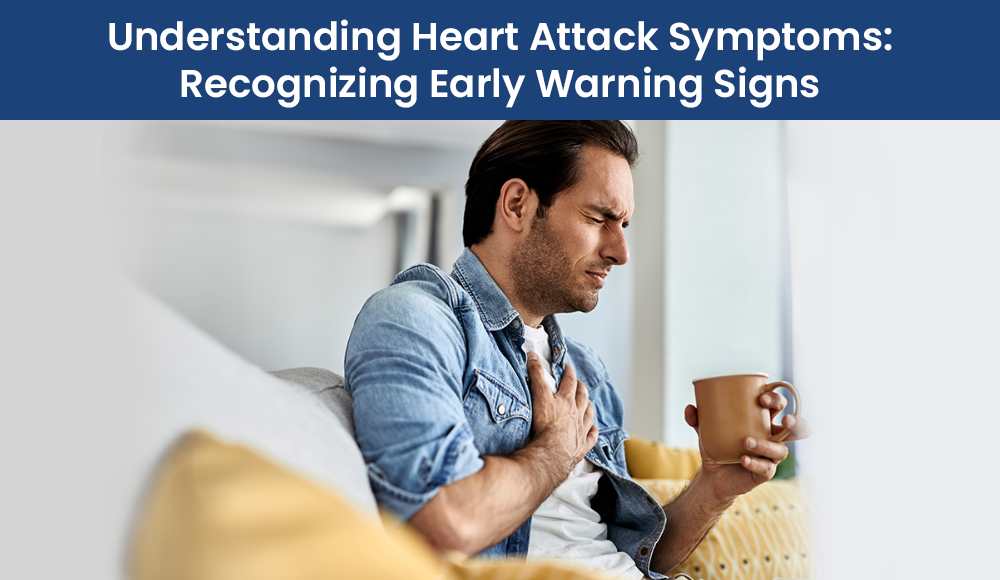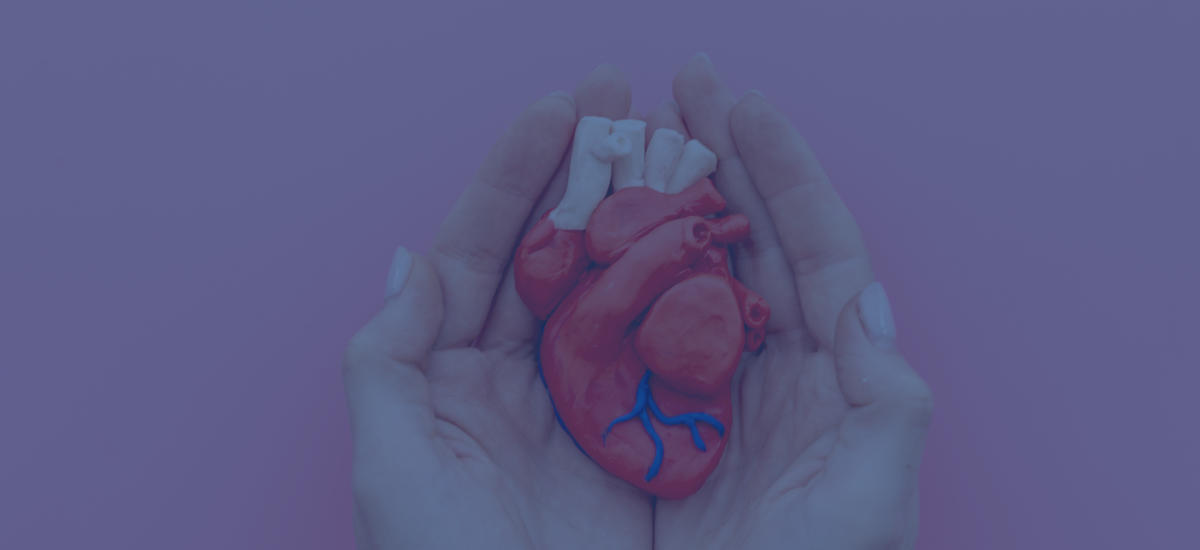Recognizing early warning signs of heart attack is crucial for quick intervention, as it can help to take quick action, which is vital. Swift action during such a critical event is imperative, emphasizing the significance of immediate medical attention. With heart attacks being prevalent and posing a significant threat to health, understanding and preventing such warning signs can make an essential difference in outcomes.
Additionally, early identification enables people to seek assistance from reputable professionals as soon as possible, potentially averting serious consequences. It is also important to prioritize awareness about these signs that underscore the proactive role individuals can play in securing their cardiovascular health.
A] The Basics of Heart Attacks
A heart attack, also known as coronary infarction, occurs when the blood flow to the heart is decreased or blocked abruptly. This blockage leads to damage or death of the heart tissue. The heart, a vital organ in the human body, carries out important bodily functions like pumping blood and supplying oxygen and nutrients to other organs.
Heart attacks typically happen when coronary arteries, responsible for supplying blood to the heart, become narrowed or blocked due to atherosclerosis disorder.
However, to prevent such occurrences, identifying heart attack early warning signs are crucial indicators that can prompt attention. These signs may include chest pain, shortness of breath, nausea, lightheadedness, or discomfort in the arms, back, neck, jaw, and stomach.
Additionally, statistics show that heart attacks affect millions of people worldwide each year, emphasizing the essential need for increased awareness, preventive measures, and timely medical intervention to minimize the impact on the health and public well-being of an individual.
B] Risk Factors To Prevent A Heart Attack
Various factors contribute to heart health, including both natural and variable elements. On the contrary, non-variable elements include age, gender, and family history with older age. Moreover, lifestyle choices play a vital role, with habits that damage your heart posing significant risks. Smoking, known for its harmful impact, heightens the likelihood of heart disease, while a poor diet filled with saturated fats and a lack of physical activities compounds the risk.
Furthermore, understanding potential risk factors is crucial for proactive heart health management. Mindfulness or familiarity also empowers people to make informed choices and alter their lifestyle habits to minimize health-related risks. Exercising, consuming a heart-healthy diet, and quitting smoking are some of the essential key factors that can help reduce potential harm.
Ultimately, nurturing an awareness culture and making informed, healthy choices allows individuals to actively participate in safeguarding their hearts and cultivating a heart-healthy community.
C] Common Symptoms of a Heart Attack
There are various symptoms, varying from mild to severe, that cause a heart attack; however, it is crucial to recognize and prevent it by taking medical help. Listed below are some of the common ones:
- Chest Pain
- Shortness of Breath
- Weakness and Lightheadedness
- Discomfort in the jaw, neck, or back
- Unusual Fatigue
There are also less obvious symptoms, including nausea and cold sweats, which can indicate cardiac distress. However, understanding these heart disease symptoms is essential for early intervention, which can also be specifically relevant when seeking expertise from a cardiac surgeon in Mumbai or any other healthcare provider globally.
Timely medical attention can significantly impact outcomes. Individuals experiencing heart problem symptoms should be aware of local cardiac surgeons and seek immediate medical consultation to address potential heart issues and ensure the best possible care for their cardiovascular health.
D] Lifestyle Choice That Increases The Risk Of Heart Disease
Heart attacks occur when an individual does take care of their health and makes unnecessary lifestyle choices that potentially lead to cardiac distress. Listed below are a few of the choices which you can avoid:
- Unhealthy Eating Habits: Consuming high in saturated fats and processed foods and other poor dietary choices contribute to heart disease.
- Smoking and Drinking: Smoking and excessive alcohol consumption are major lifestyle factors that are harmful to heart health. Instead, quit smoking and moderate alcohol intake to make essential lifestyle changes for a healthy heart.
- Physical Inactivity: Lack of physical activity raises the chance of developing heart disease. It is imperative to do regular exercise, which typically promotes and improves cardiovascular fitness.
- Stress: Chronic stress negatively impacts heart health. Managing stress through relaxation techniques and mindfulness. In addition, adequate sleep is integral for heart health, as sleep deprivation can contribute to risk factors of cardiac distress. Therefore, it is essential to prioritize the importance of sleep for a healthy heart.
- Hereditary: Heart disease in the family increases susceptibility. Knowing one’s hereditary predispositions motivates proactive lifestyle modifications for heart health. An individual needs to opt for regular health check-ups and be aware of the first signs of heart attack that can become paramount in such cases.
E] Steps To Take Post-Heart Attack
Recovering from a heart attack can take an extensive period, and it is important not to rush toward the rehabilitation process. However, mentioned below are some key factors you can abide by for straightforward recovery and overall well-being:
- Follow Doctor’s Instruction: Initially, it is important to adhere to medical guidance such as regular check-ups and compliance with prescribed medications, which can contribute to effective management.
- Start Physical Activity: Engage in exercises for a healthy heart, like walking, jogging, running, and other aerobic workouts that can improve your cardiovascular fitness. Regular physical activity is essential for heart health and promotes general well-being.
- Quit Smoking and Drinking: Giving up on smoking and reducing alcohol consumption are essential lifestyle adjustments. The discontinuation of these habits promotes a healthy cardiovascular system and substantially impacts a healthier heart.
- Determine a Healthy Diet: Avoid processed and saturated food; instead, embrace healthy hearty foods like fruits, vegetables, nuts, and lean proteins. Additionally, adhering to a heart-healthy diet, which has low saturated fats and sodium, can be beneficial for cardiovascular well-being.
- Sign up for Cardiac Rehabilitation: Cardiac rehabilitation provides structured programs that include heart health exercises, dietary advice, and emotional support. Participating in these activities promotes long-term cardiovascular health and aids in recovery.
Conclusion
Understanding heart attack symptoms is essential for acclaiming swift intervention. However, it is also imperative to recognize early warning signs and provide immediate medical attention, which can prevent from causing extensive concern and provide a positive outcome. Additionally, share this vital information with your friends and family to promote a heart-safe future.
For more information and assistance on recognizing warning signs for heart attack and creating a healthier community, Contact us!







[…] not ignore warning signs, such as chest pain or dizziness; seek immediate help when symptoms […]